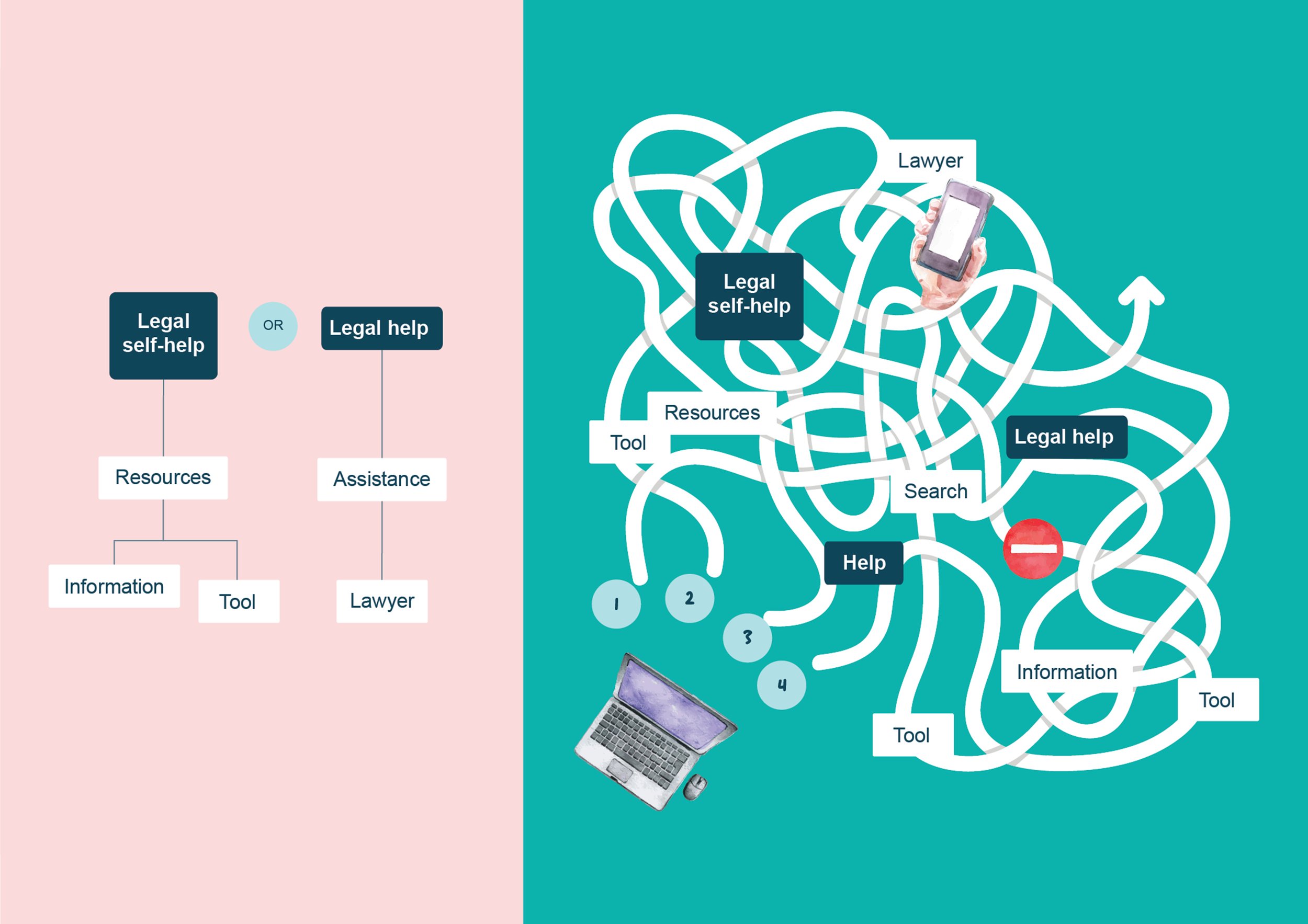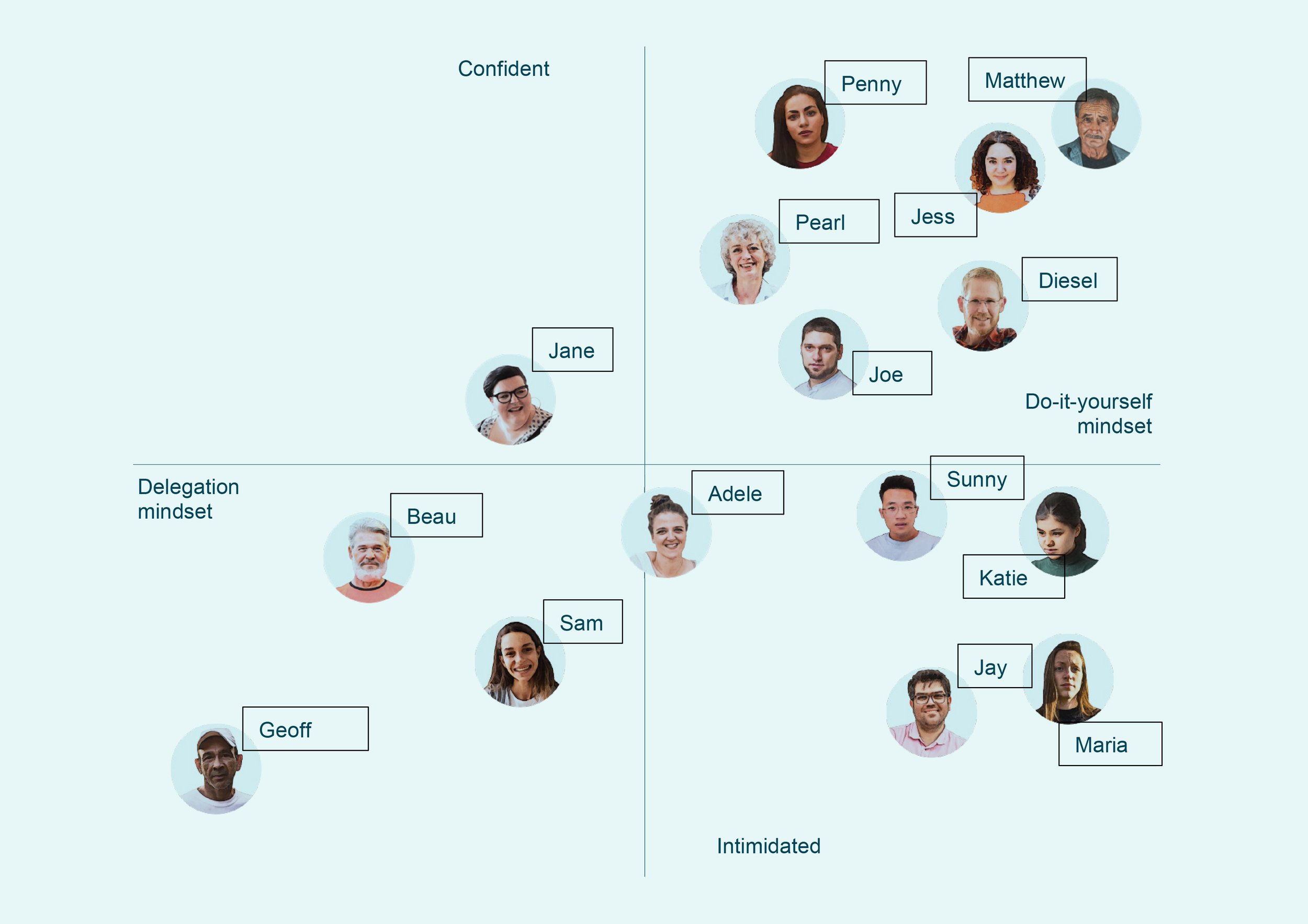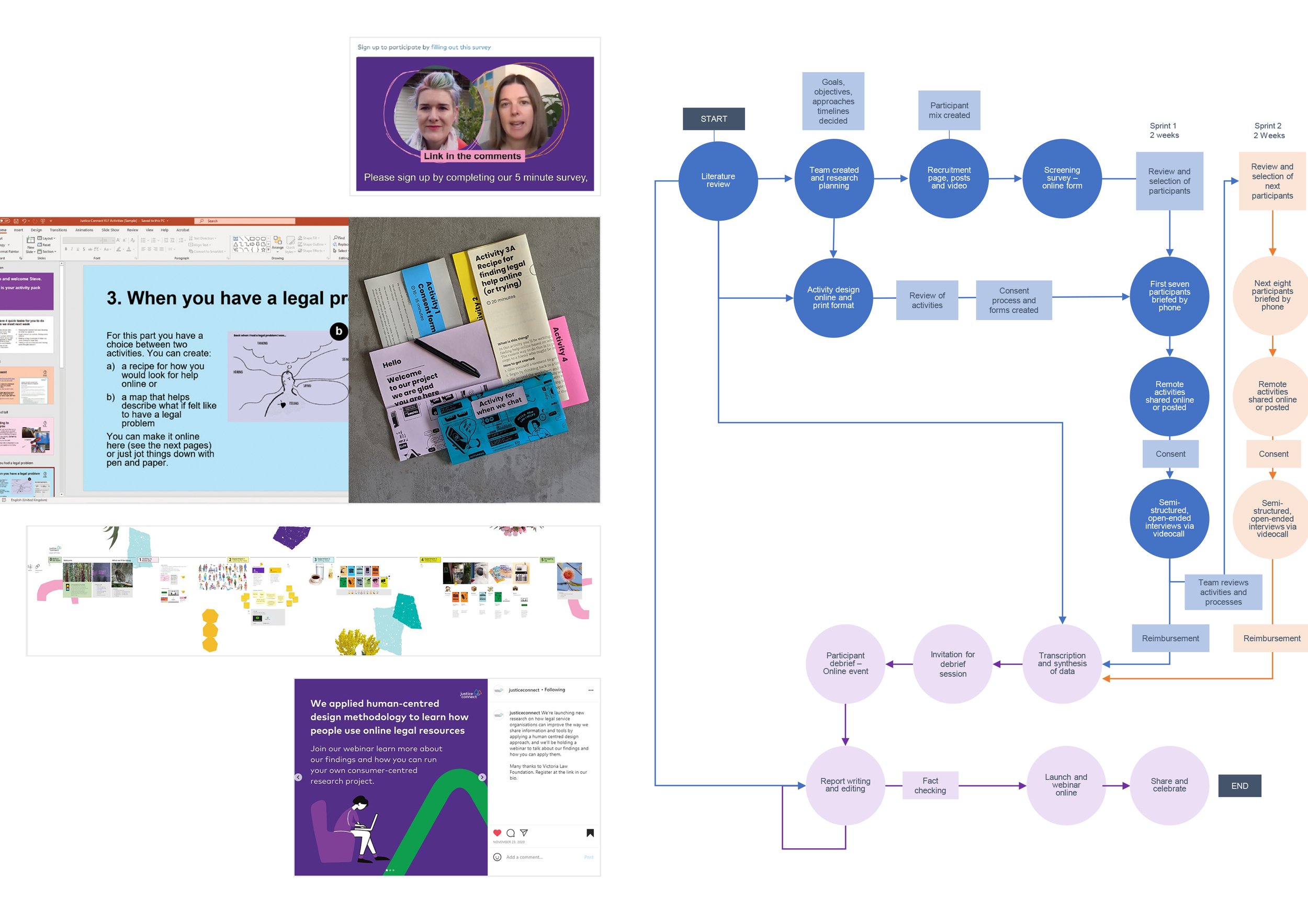Understanding Legal Help Seekers Online
Digital resources can help people solve common legal issues. They are especially important for people who can’t afford a lawyer or access free public or community legal assistance. Yet so much legal information online is poorly designed and inaccessible, that millions of Australians cannot resolve their civil legal issues independently.
Australian not-for-profit organisation Justice Connect, with funding from the Victorian Law Foundation, commissioned research in 2020 to better understand the attitudes and behaviours of people seeking information and help online for common civil law problems. Their aim was to inform better design and deployment of digital self-help resources across the legal services sector.












Taking a strengths-based and participatory approach to design research
Jo Szczepanska and I teamed up to design, carry out and present this research in inclusive, human-centred ways. During the first waves of the pandemic, we radically reshaped the research design from the original plan centred on face-to-face workshops. Our subsequent investigation uniquely combined remote participation, generative activities, interviews and prototype testing to uncover digital skills and self-help expectations.
We recruited participants from priority groups who are made vulnerable to legal problems and often assumed to have lower capability or limited access to online resources. This included recent migrants, people living with a disability, single parents, and people living in a regional, rural or remote community. We learned from a diverse range of people about what they found useful in online resources to help them begin to resolve legal problems related to debt, work, housing, and accessing courts remotely during the COVID-19 pandemic.
Presenting research methods and findings in engaging ways
The comprehensive report ‘Seeking Legal Help Online’ outlines the hypotheses and methods of the research design, as well as outcomes in the form of insights, recommendations and design principles. The design principles offer research-informed best practice guidelines for the development and deployment of online resources in accordance with people’s needs and preferences.
The report demonstrates value to professionals with various sources of evidence and principles, and as a guide to further research, with appendices sharing the research design and materials used. User insights and practical recommendations are linked to participants’ quotes, so readers never lose sight of the people at the heart of this project. Visuals, tables and screenshots also help to bring the research to life.
In a recorded webinar that can be watched via the project web page, we shared our insights on designing this research project using best practice methodologies and working with communities.
We received lots of positive feedback and recognition for this work:
Justice Connect is applying research findings and techniques to evaluate, improve and scale legal help, such as the redesign of innovative self-help tool 'Dear Landlord'.
Of the surveyed stakeholders who read the report and/or watched the webinar, 83% strongly agreed that the report empowered them to produce more innovative, helpful and intuitive legal resources for people. 100% would recommend the report to colleagues or a partner organisation.
What people said about the research outputs
“The report’s presentation on the web was great, very accessible, and easy to go back into and access the part of the report you were looking for….. The report should be ‘compulsory reading’ for anyone involved in providing legal information to the public.”
— Phillipa Scarf, Head of the Legal Information Access Centre at the State Library of NSW
“An important, socially worthwhile research project which demonstrates how design can assist people with legal matters that are often a confusing and fearful situation. This research can help millions of low-to-medium income earners in Australia who are falling through the gap between what government funded systems can provide and the legal services they cannot afford. It demonstrates how design can help solve tricky, real-world problems. Well done.”
— Good Design Awards Jury 2021
“Australian organisation Justice Connect has published one of the must-read reports of the year: Seeking Legal Help Online…. This is a rich consideration of how self-help resources can be designed. It puts Australian experience front and centre of global discussion of a key topic. And, drinking its own kool aid, the report itself is really well designed.”
— Roger Smith OBE, Solicitor and Visiting Professor, from the influential Law, Technology and Access to Justice
“We know a lot of online legal resources have been produced, but that users do not always find it accessible or helpful. Justice Connect’s project is timely and shows what, and how, key insights needed to design more effective online legal help can be obtained, and how a focus on end users can make a critical access to justice difference.”
— Dr. Hugh McDonald, Principal Researcher at Victoria Law Foundation
